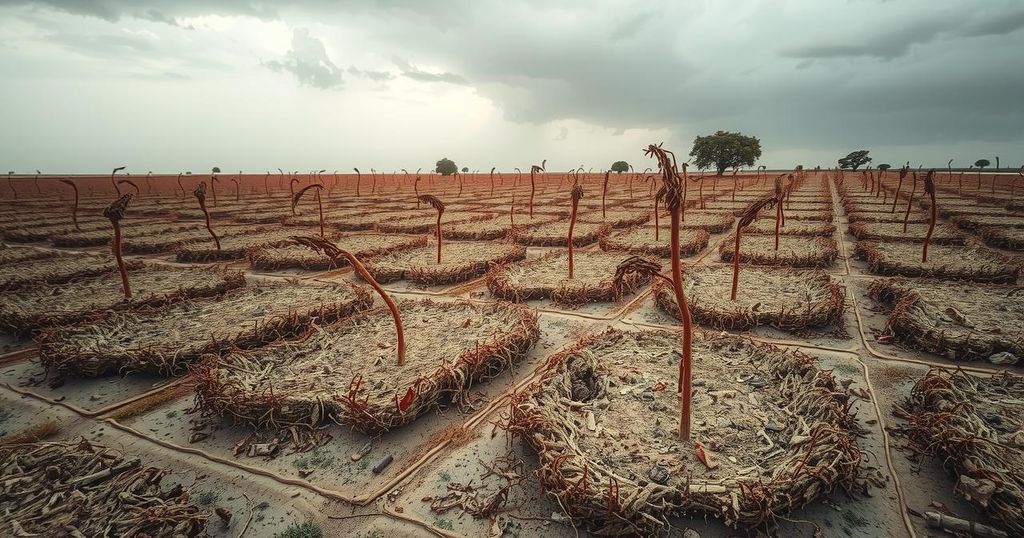Representatives from the Canadian Foodgrains Bank visited South Sudan to assess the humanitarian crisis exacerbated by recent USAID funding cuts. With millions facing hunger and displacement due to conflict, critical services have been diminished, highlighting the urgent need for continued assistance. The Canadian government has committed $4 million to aid those in need.
Recently, representatives from the Canadian Foodgrains Bank visited South Sudan to gain insights into the severe humanitarian crisis that is currently affecting the region. Canadian Foodgrains Bank Executive Director, Mr. Andy Harrington, along with Winnipeg Senior Humanitarian Manager, Mr. Stefan Epp-Koop, directly witnessed the tragic consequences of ongoing conflict, famine, and service closures caused by funding reductions.
The recent budget cuts from the U.S. Agency for International Development (USAID), along with a drastic 90-day suspension of its activities, have exacerbated the urgent needs for essential resources, including food, water, health care, and shelter. This situation places vulnerable populations at heightened risk during times of humanitarian crises.
Until the secession in 2011, Sudan and South Sudan existed as a single entity. Following years of civil war, South Sudan emerged as a new nation. The recent conflict in Sudan commenced in April 2023 and has greatly affected civilians. Mr. Epp-Koop remarked, “It’s been a vicious civil war that has had a tremendous impact on civilians across the country.”
Statistics reported during their visit indicate that 26 million people in Sudan currently face hunger, and 11 million remain internally displaced, with many seeking refuge in South Sudan. “The impacts of the war are horrific,” Mr. Epp-Koop stated, noting that families are forced to flee for their lives, often leaving behind everything they own to escape joining military forces.
The repercussions of the ongoing conflict are especially fuelling a humanitarian crisis, with civilians suffering from malnutrition and displacement. Mr. Epp-Koop expressed concerns that the recent USAID cuts have severely affected health care and nutrition services in both Sudan and South Sudan. Funding reductions have led to the closure of healthcare facilities and hindered educational opportunities for thousands of children.
He further emphasized that the USAID assistance constituted less than 1% of the American government’s overall budget, yet its reduction could lead to significant loss of life. This illustrates a troubling reality where critical humanitarian support is jeopardized over minimal budget considerations.
The Canadian Foodgrains Bank is engaged in several initiatives in Sudan and South Sudan, providing essential food aid and implementing long-term food security projects. Recently, the CFB announced a $4 million investment from the Canadian Government designated for humanitarian efforts in Sudan, aimed at supporting projects that address the most pressing needs.
In concluding, Mr. Epp-Koop highlighted the dual mission of the Canadian Foodgrains Bank: ensuring immediate aid for those in need while working towards sustainable solutions for a better future.
The investigation by the Canadian Foodgrains Bank representatives into the humanitarian crisis in South Sudan has illuminated the dire consequences of funding cuts and ongoing conflict. The significant displacement and hunger faced by millions in Sudan and South Sudan underscore the critical need for continued support. Through targeted projects and recent government investments, there is an opportunity to provide essential aid and foster long-term food security improvements.
Original Source: discoverwestman.com




